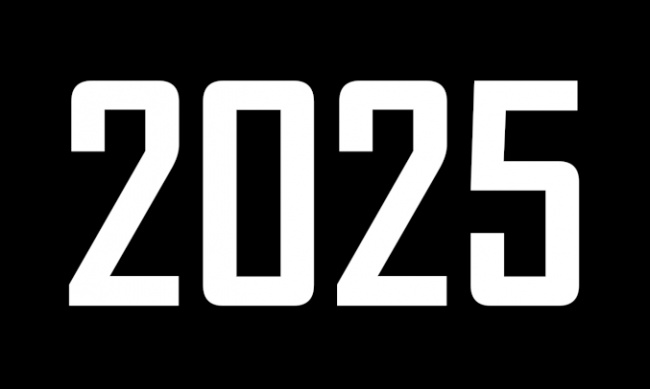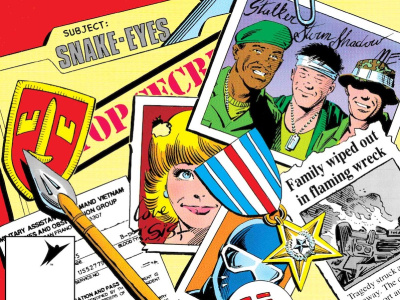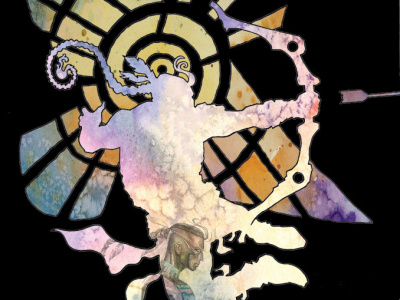Here in our little industry that feeds the fantasies and fears of readers while supplying sweet, sweet IP for the global media beast, some of that is going to wash up on our shores. Will it impact the way we do business? Will there be other opportunities and disruptions? Let’s see what the crystal ball has to say this year.
Policy changes ripple through the industry. After four years of complaining about higher prices, the American people just elected a new administration whose central policy proposal, a surcharge on imports from our biggest trading partners, is practically guaranteed to raise prices. Are they serious? Well, we’re about to find out.
Assuming that these folks mean what they’ve said, a tariff on products from Canada (where most periodical comics are printed), South Korea and China (where many books and merchandise items are manufactured) and Japan (owner of many popular licenses), would make all those things more expensive for consumers (see "What the Election Results Could Mean for the Comics Industry?"). Are comics fans ready and willing to pay $6, $7, $10 or more for a floppy? Can the market sustain 20% increases in retail prices without a penny of that going to publishers, retailers or creators? Meanwhile retaliatory tariffs that our trading partners will almost certainly impose if we follow through on that could snuff out demand for U.S.-made products overseas.
If this happens, US-based operations will need to shift dramatically toward domestic sources of supply, some of whom might not be ready to scale up as fast as companies and consumers need them to. And this may all happen in the face of a crackdown on immigration that could create labor shortages and skyrocketing wage inflation. The most fun part about all of this? We legit have no idea whether it’s real or kayfabe, and we won’t know for another two weeks.
Some might say that the fate of the comics business in the face of this would be of secondary concern. But not if it happens to be the business you work in, or the industry that produces the products you love.
Distribution shakeout. Even if the world economy doesn’t come loose from its moorings, there are still plenty of sources of internal uncertainty. 2024 ended with the news that one of Diamond Comic Distributor’s last big customers, BOOM! Studios, recently acquired by PRH, would be shifting its distribution to… PRH (see "PRH Taking Over BOOM! Distro”)! Shocker! At the same time, Diamond closed one of its two main warehouses (see "Diamond Closing Plattsburgh"), another troubling sign for the industry’s erstwhile distribution powerhouse.
There are three possible outcomes here. One is that Diamond limps through another year, pulling together enough from its merchandise and sub-distribution businesses to continue to service its remaining publishing customers. Second is that it blinks out of existence, leaving the field to PRH, Lunar and whatever upstarts come out of the woodwork to fill the vacuum for smaller imprints.
Or, it could get acquired.
The most plausible theory I heard in 2024 about why PRH, a traditional publisher that already does plenty of graphic novels, acquired BOOM! Studios, is that it wanted to gain "learnings" (ugh, sorry) about the publishing side to improve its distribution operations. You know a really good way to learn about comics distribution? Buy another distributor, one with 40+ years of nitty-gritty experience in the trenches. Of course, there’s no reason to believe Diamond, a closely-held family business, is for sale. But if I were them, I’d listen to offers.
Crowdfunding boom. Back in the 2010s, one of the most tangible ways ComicsGate made itself felt was in the number of crowdfunded projects that disaffected fans backed purely because the people involved were, for want of a better term, "virtue-signaling" a particular tribal identity at a time when members of that tribe felt under cultural attack.
Well, the shoe is on the other foot now, and the avenues for registering dissatisfaction with emerging trends in the culture are limited when one side holds all the power. So I’d expect to see a big increase in the already-strong support for independent projects for creators who express a particular identity or point of view, especially if support for diversity dries up at traditional publishers.
Crowdfunding might also provide a workaround for the cost issues if tariffs take a bite out of commercial publishing, and to provide a lifeline for creators feeling the bite from mounting technology and business pressures.
Company events out, licensed book crossovers in. The days of licensed comics being the red-headed stepchild of the publishing industry appear to be over. In fact, licensed titles like Dynamite’s Space Ghost, Mad Cave’s Dick Tracy, and of course IDW Publishing’s TMNT universe are some of the most creatively interesting books on the racks.
Licensors are often prickly about the terms of use for their characters, but we’ve seen more and more examples of "worlds collide! " crossover events. Now that even civilians are fully briefed on the once super-nerdy concept of a multiverse and the narrative possibilities contained therein, I’ll bet we see a bunch of fun cross-license team-ups, maybe even ones that cross over previously hard-and-fast corporate lines.
The fact that longtime Star Trek licensor Paramount Studios was recently sold to upstart Skydance Media, that Universal Studios’ parent company Comcast has signaled its intentions to spin off some of its assets, plus the ongoing integration of Fox properties into Disney, suggests additional opportunities in this space.
Another year of "free speech" headaches. In last year’s predictions, I thought 2024 was going to be a tough year on the free speech front, and it was, but we’ll be looking back at the early 2020s as the good old days pretty soon.
With few friends left in the courts and government, advocates of free speech in the "Congress shall make no law" sense are probably going to be spending a lot of time and money trying to fight draconian bans at the state, local and maybe even federal level. Meanwhile, the folks for whom "free speech" means getting to say whatever you want on whatever platform you want without judgment or consequences are going to continue to make life miserable online.
Last year’s scorecard. Speaking of accountability, here’s a quick review of my forecasts for 2024 and how they stacked up.
- Collectibles: Correction or Collapse? Yep, still an open question (see "Up, Down, Sideways? Decoding the Mixed Signals in the Collectibles Market")
- Industry consolidation and shakeout. There was the Boom! Studios sale, which was a pretty big deal, but a lot of dogs haven’t barked yet.
- Back to basics: comics first. I think it’s fair to say this was the best year creatively for major publisher periodical comics, led by Marvel Ultimate and DC All-In, in quite a while, followed by lots of interesting stuff from other Top 10 publishers, without too much appearing on the stands that looked like an IP tryout for future media exploitation.
- Censorship chills. See above. Whatever we saw last year was just the warmup act.
Anyway, here’s to a healthy and happy 2025, and hoping every gloomy forecaster like yours truly is completely wrong about everything.
The opinions expressed in this column are solely those of the writer, and do not necessarily reflect the views of the editorial staff of ICv2.com.
Rob Salkowitz (@robsalk) is the author of Comic-Con and the Business of Pop Culture and an Eisner Award nominee.









